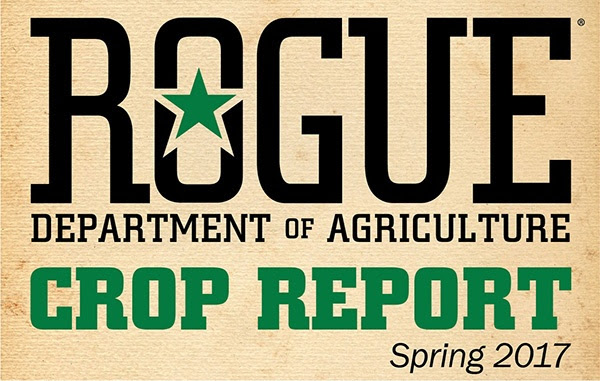 When we saw strange white things falling from the sky in early December 2016, we knew we were in for an unusual winter. It had been five years since we last had more than a dusting of snow at Rogue Farms in Independence, Ore. Located along the Willamette River in the central Willamette Valley, it’s typically a bit too warm for snow to stick.
When we saw strange white things falling from the sky in early December 2016, we knew we were in for an unusual winter. It had been five years since we last had more than a dusting of snow at Rogue Farms in Independence, Ore. Located along the Willamette River in the central Willamette Valley, it’s typically a bit too warm for snow to stick.
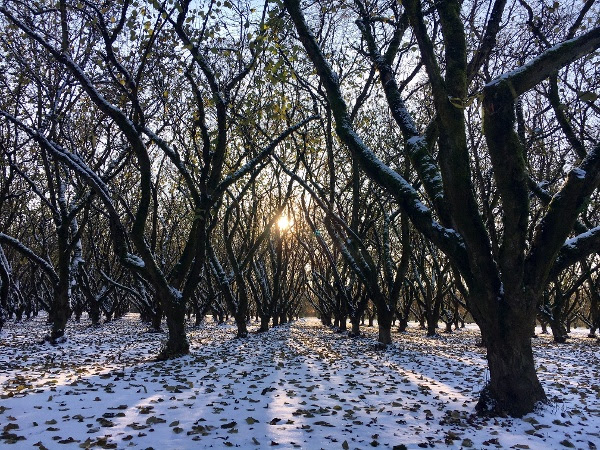
From coastal tornadoes in October to graupel (imagine ice bonding to a snowflake, creating balls of frost) and record snowfall from December to February, Oregon’s winter weather was, to put it mildly, out of the ordinary. With the average temperature at just 33.5 degrees, this was the coldest January since 1985 and the seventh coldest on record.
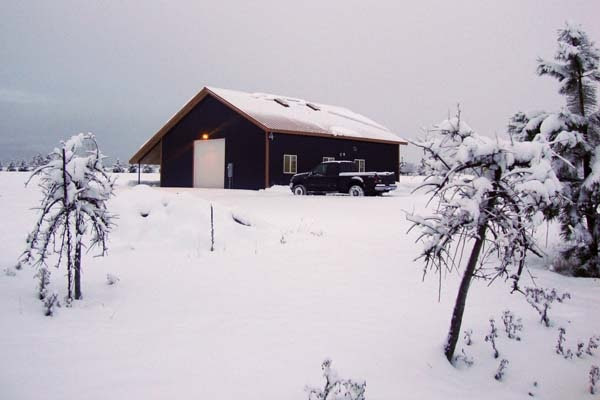
The terroir of Rogue Farms in Independence and Tygh Valley is constantly evolving, and we as farmers must adjust as we continue to grow beer, spirits, ciders and sodas in collaboration with Mother Nature. Sometimes the surprise is welcome, but sometimes it means an incredible loss in crops. This year, we had a bit of both.

The flood that (almost) wasn’t
We’re no strangers to flooding at Rogue Farms, but like all the weather this winter, it was unique. The Willamette River teased us all winter with unpredictable water levels. We were sure that we would be cut off from the farm in February, but that merely resulted in The Great Puddle of 2017.
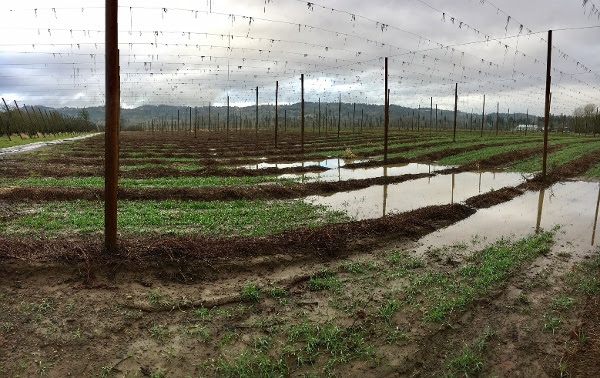
Floodwaters bring in fresh silt, nutrients and moisture to the hopyard. Regardless of the incredibly fertile soil in the Willamette Valley, we welcome the boost flood season brings.
As February passed we thought we might see our first winter without the Willamette River rushing into our fields, but we’ve learned that there is no use in trying to predict what Mother Nature has in store. The river broke its bank just days before spring.
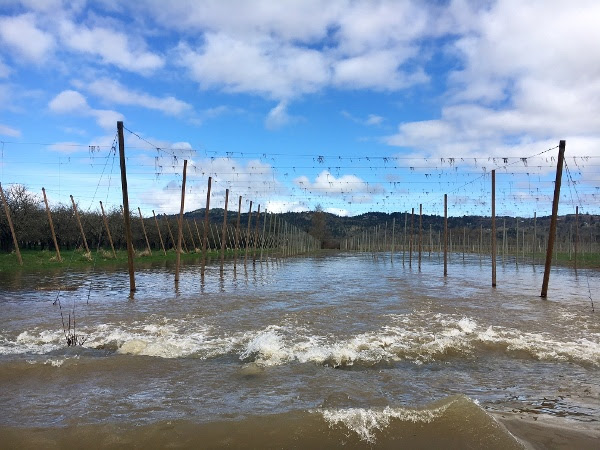
A spring in our step
Although we’re grateful for the winter rain and snow fall, needless to say, we were happy to welcome spring. In early March, during a morning stroll through our 52-acre hopyard, we were greeted by the first hop bines emerging from the soil. This year is especially exciting. We planted two new proprietary varieties of hops last summer. Although we know not to expect many cones until their second year of growing, we hope we have enough to sample what’s coming.
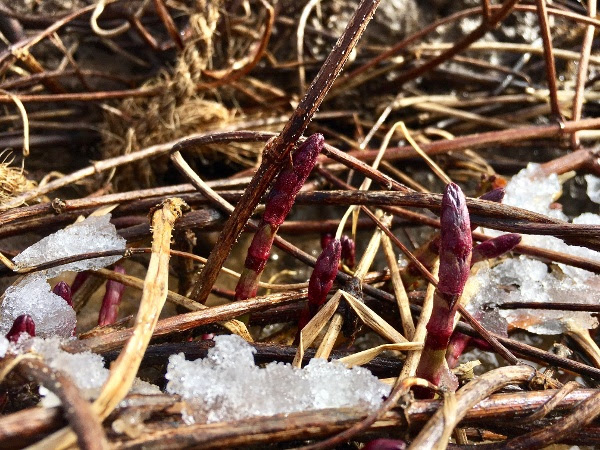
Not to be outdone by the hops, our two-acre Prickless Marionberry yard began budding shortly after, and the apple, cherry, pear and plum tree blossoms appeared.
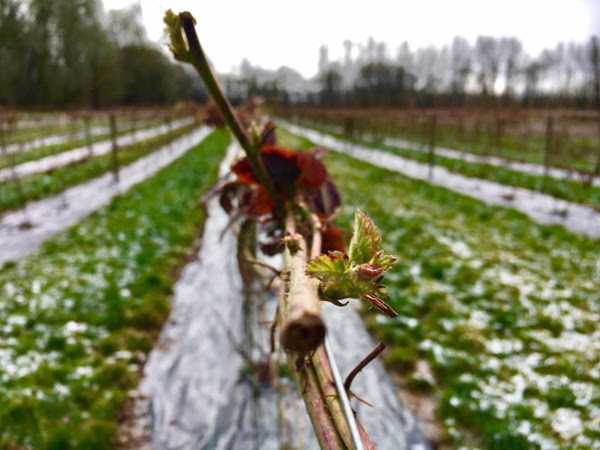
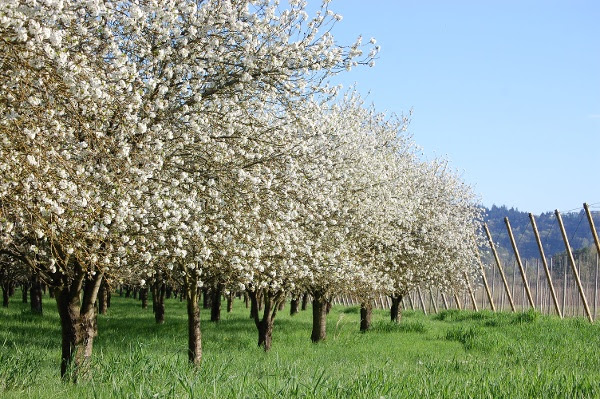
No rest for the revolution
Spring is a beautiful time of year, but it also signals the beginning of a very busy few months.
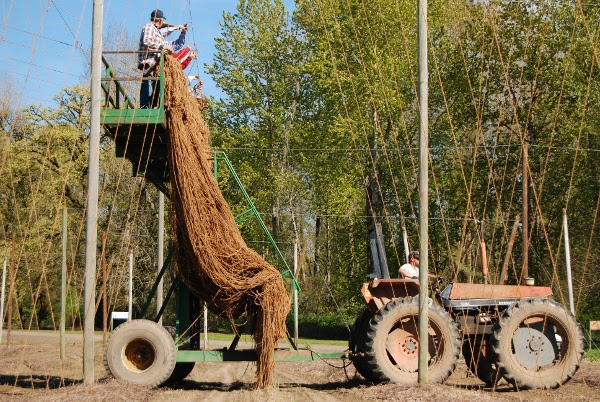
In our 52-acre hopyard we’ve begun tying and staking 78,788 strands of coir for the bines to climb. Coir is a biodegradable, braided coconut husk imported from Sri Lanka. Stringing will be followed by hand training 78,788 hop plants to climb the trellis. Growing our own ingredients isn’t easy, but we know it’s worth it.
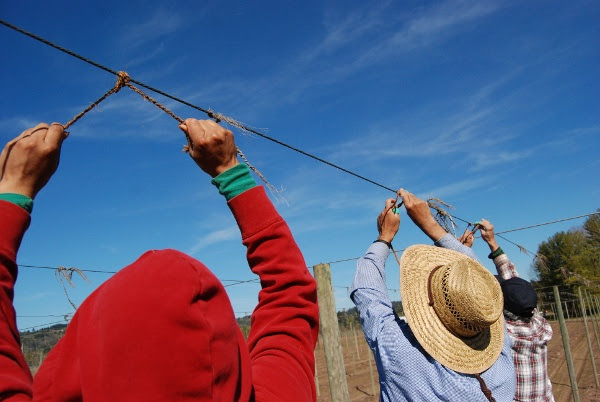
Each piece of coir is 21 feet long. A crew of six rides high between the poles, tying six strings to each section of wire. They average 126 feet of string going up every ten seconds — or a quarter mile of string every minute.
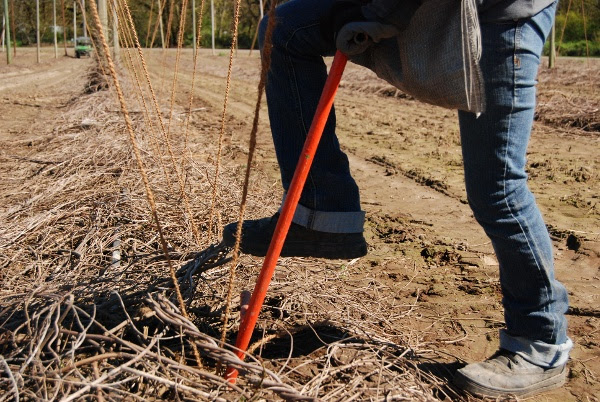
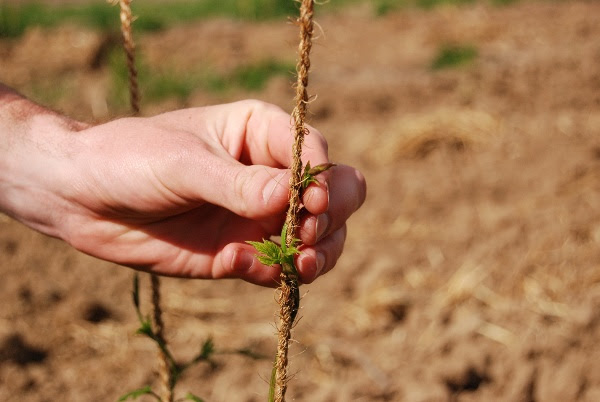
After the hopyard is completely strung, we pick two to three of the strongest looking bines to train to climb the coir.
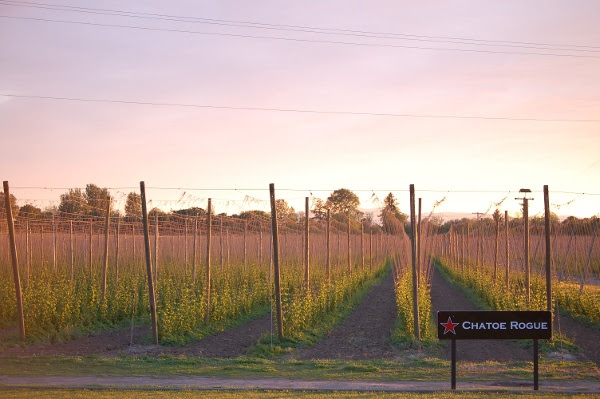

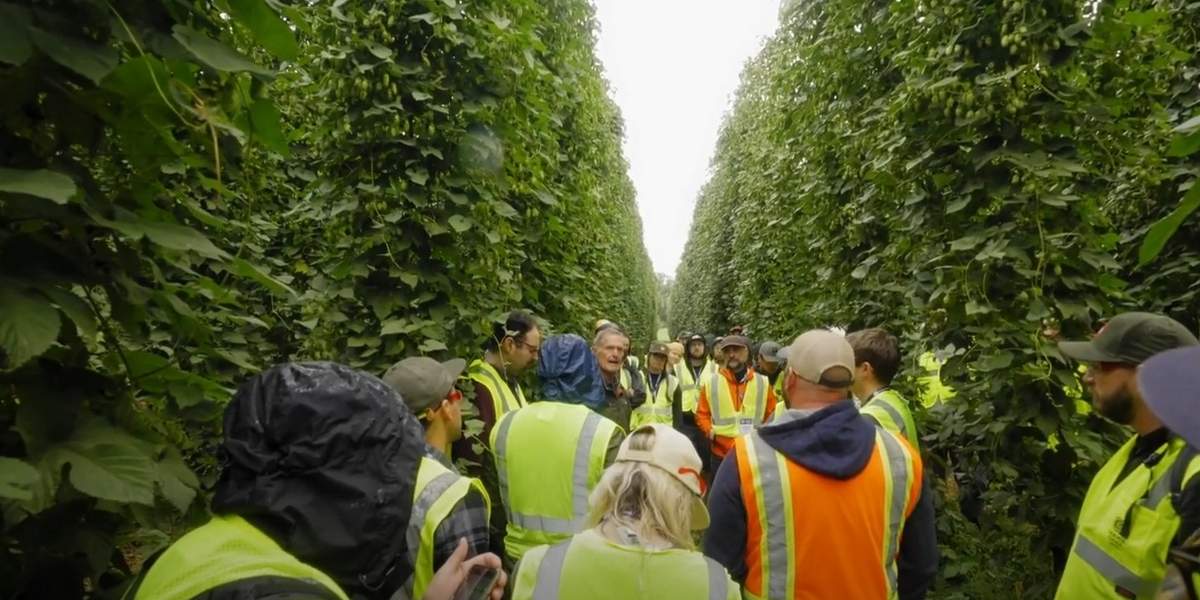

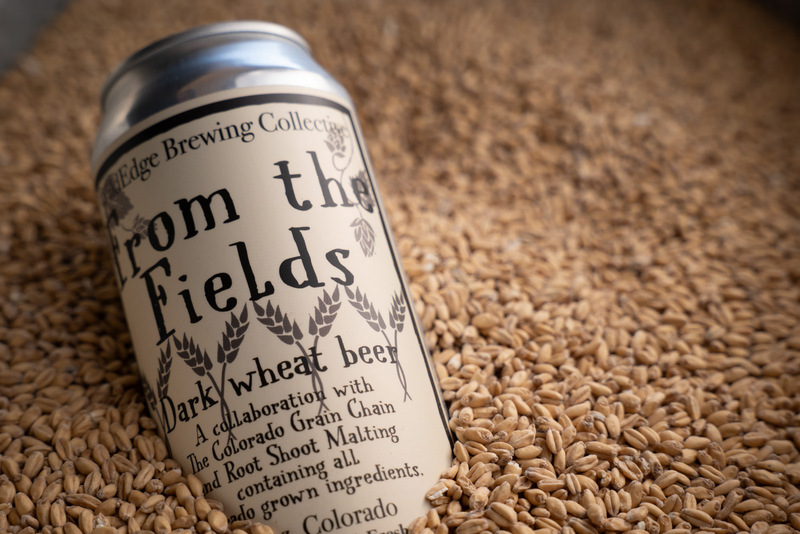
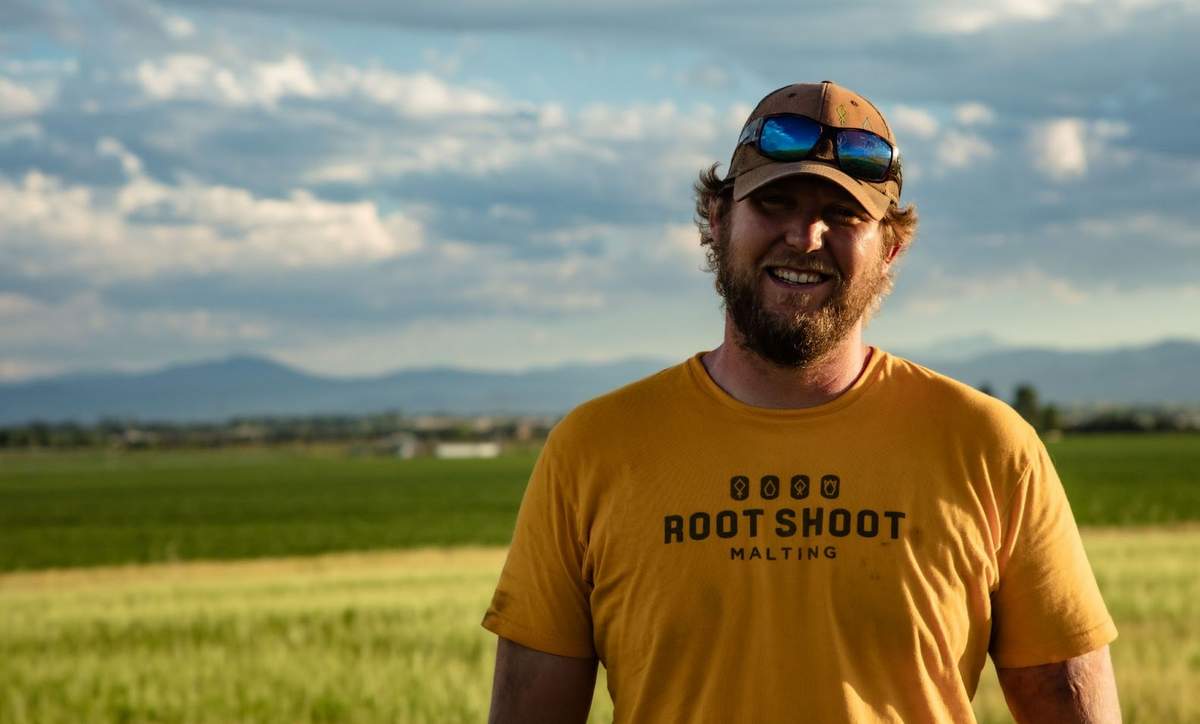
Leave a Reply
You must be logged in to post a comment.